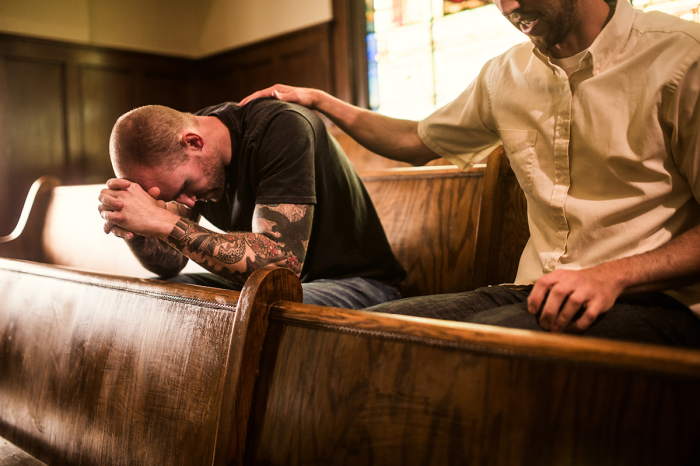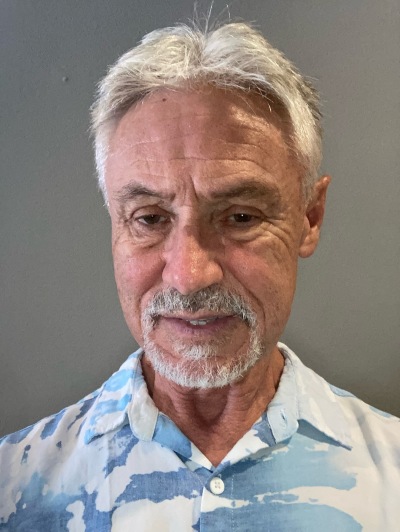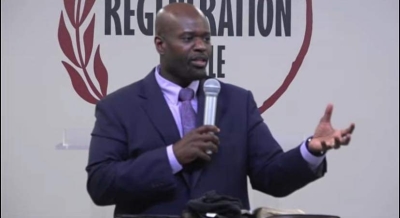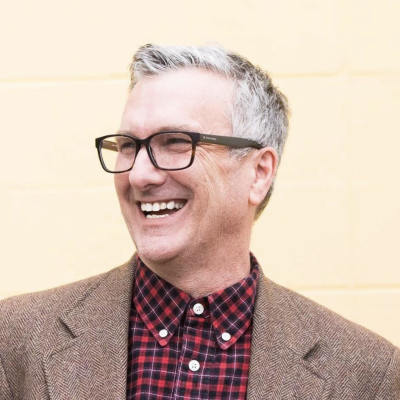Pastors say there's a dire need for forgiveness, lament some Christians not in ‘forgiving mood’

When some Christians hear the words “forgive” or “forgiveness,” it might bring up feelings of grief, painful memories or bitterness and resentment toward others.
Yet other believers feel warmth in their hearts followed by relief and the joy of reconciliation.
Throughout the Bible, God shows how much He values forgiveness. In Colossians 3:13, He instructs Christians to “forgive as the Lord forgave you,” and to “forgive them, so that your Father in heaven may forgive you your sins” (Mark 11:25).
For National Forgiveness Day, The Christian Post interviewed pastors to learn more about why God expects Christians to forgive and why forgiveness is increasingly difficult for many believers who find themselves unwilling to forgive even after years or decades have passed.
According to a 2019 Barna Research study, while most Christians have engaged in no-strings-attached forgiveness at some point in their lives, one in four practicing Christians struggle to forgive.
James Slick, the executive pastor of Summit Baptist Church in Acworth, Georgia, told CP that there is always going to be a need for forgiveness, because, in every relationship, there are going to be weaknesses, challenges and struggles.
“In our relationship with God, there's always a need for forgiveness because we're always going to be imperfect. As hard as we try to be really good people, we're still going to make mistakes. We're going to fall short of God's glory. We're going to have what we would call sin in our lives,” Slick said.

“There's a constant need for there to be forgiveness that we either request from God or that God grants to us. And the same thing exists in our relationships with people. The bottom line is, I'm not perfect. I make mistakes. And as a result of the fact that we're never going to be perfect, there's always going to be a need for forgiveness.”
Slick said he learned in his life that there is never a reason to withhold forgiveness from anyone because bitterness only hurts the person who is harboring it.
Slick shared that he encountered two tragic situations where he had to find forgiveness and it wasn't easy. However, he knew finding it in himself to forgive had to happen in order to obey God’s biblical commands.
“We realized at one point in our lives that one of our children had been sexually abused by another family member. The only thing I can tell you is, I keep going back to what I believe Scripture teaches and that is Jesus said, ‘If you're not willing to forgive people for their sins, how can you expect me to be willing to forgive you?’” Slick said, adding that he forgave the family member.
“That has been something that's really been a primary thought in my life as I've gone through the ministry. Because sometimes, when you're in the ministry, everyone would think that you're treated really well, just because you're representing Jesus Christ. But that's not always the case.”
In addition to his child being abused, Slick said he also had to forgive his father for many things that occurred when he was in high school and college.
“I was raised in a family where my father suffered significantly with Post Traumatic Stress Disorder as a result of trauma that he experienced while in the military. This was years ago before PTSD was ever diagnosed properly or accurately, and it was before it was understood to exist,” Slick said.
“Our relationship was very tumultuous, mainly because of the issues he experienced from PTSD. And I will be honest, it took a lot of prayer and a lot of seeking God's help for me to reach the point where I could say, ‘I forgive you.’”
Slick said that forgiveness has become increasingly difficult for many in society because people have distanced themselves from their Creator.
“I think what's happened in our world is that we have moved further and further away from biblical principles as it relates to the kinds of relationships we should not only have with God, but the kinds of relationships we should have with each other,” Slick said.
He added: "We live in a very self-centered world where most people are functioning on what I would call an earthly wisdom, as opposed to a heavenly wisdom. Earthly wisdom is evil in the way that it leads people to make decisions. And as you make decisions, that's going to impact the kinds of relationships that you have with people, which would ultimately impact your attitude about forgiveness and encouragement and love and support and all of those issues that I think are clearly delineated in Scripture.”
Forgiveness: ‘Posture of the heart’
Charles Washington, the pastor of Regeneration Temple Church in Raleigh, North Carolina, told CP that forgiveness is a “posture of the heart,” which in many ways mirrors the act of repentance.
“Repent means to turn. Repent means to make a decision. If I was caught in a sin, when I repent, it's not just saying ‘I'm sorry.’ It’s saying I've turned from what I'm doing. I've changed my heart, and I've changed my mind not to do it again, and I'm going in another direction to follow Christ,” Washington said.
“Likewise, forgiveness is a heart thing. Just like repentance, if I forgive, I'm not going back to the same issue. I'm not bringing it up. I don't have to keep rebuking you or talking to you because I’ve forgiven you in my heart. It doesn't matter what you say,” he added.

“Jesus spoke to many people in the Bible about how they would say things, but their heart was not right and He knew that. Their lips didn’t match their heart.”
Washington said that if someone wants to forgive, they need to be aware that their heart is the first thing that needs to be changed because forgiveness starts at the heart.
“With God and with Christianity, everything is a matter of the heart. That's why David said, ‘Lord, create in me a clean heart.’ He didn't say, ‘Lord just change my mouth.’ Because if I changed my language, but my heart isn’t changed, then it doesn't mean anything. And ‘out of the heart, the mouth speaks,’” he said.
Washington had to learn to live without his father, who abandoned him when he was 8 years old, and as a result, he felt bitterness and resentment toward him for many years.
“It was hard for me for a while to deal with that. I held a lot of hurt and pain and unforgiveness for that. But I realized that I was only hurting myself by holding him in bondage. And by thinking that I was holding him in bondage, I was the one behind the prison bars,” he said.
“I dealt with that for many years. I had to ask God to give me a forgiving heart, that I may be able to forgive and that's how I got through that.”
'Selfie-generation' lacks forgiveness
Christians moving further away from forgiveness is a direct result of the times people are living in, Washington added, labeling the present generation "the selfie generation."
“We're in the generation where, by and large, it has become a lot about ourselves. The Bible says, ‘In the last days, men will be lovers of their own selves.’ That Scripture kind of tells us what day we are in,” he said.
With people being more focused on themselves, Washington said, it has become harder for many to spend any time thinking about how they can love others better and engage in forgiveness wholeheartedly.
“The Scripture tells us that in the last days, ‘we will be a selfish generation.’ … With all of the social media platforms, it's about how many likes and followers you get. I do understand why this is happening because the world teaches you to be all about yourself,” Washington said.
“The Bible teaches to ‘deny yourself, take up your cross and follow Him.’ It's a different philosophy. You've got the Kingdom of light and you've got the kingdom of darkness. And many of us in the world are influenced by the kingdom of darkness and not the Kingdom of light.”
The Church’s role in forgiveness
Andy Rogers, the family ministry pastor at Capital Life Church in Arlington, Virginia, told CP that he doesn’t think there is any direct correlation between declining church attendance in the United States and the decline in those who are engaging in forgiveness.
However, he said, it's worth recognizing that many churches are working toward spreading forgiveness among their congregations.

"If you start living in a world that welcomes, that extends forgiveness and receives forgiveness on a regular basis, you're going to be a healthier person. It really doesn't have to do so much with the four walls of the church," Rogers said.
“But we also know that the Church is sharing that truth if they are a Bible-believing church that believes that the Word of God is the inherent Word of God, that everything that's in it is real, that everything in it is truth, and that you have to accept the Word of God for what it is.”
Rogers said that, in his own life, he once thought he forgave someone, but he later came to realize that he unknowingly still harbored some bitterness toward that person.
“There was a pastor that I had worked for, and I was let go from a church. There were some things that were going on in the church. It wasn't too healthy. I was asked to leave and I had done nothing wrong. They couldn't give me a reason, other than the fact that they were kind of ‘cleaning out,’ just to get some fresh people there that didn't know about some past things that happened at the church,” Rogers recounted.
“I actually asked for forgiveness or whatever for my feelings that I had toward him. And I also wanted to share some of the things that deeply hurt me and he had the opportunity to apologize. We actually sat down at Starbucks and did this reconciliation,” he said.
“Fast forward 10 years later, we were both in the same spot together and we kind of brushed paths. And all those old feelings of hurt and bitterness resurfaced and it showed in the way I treated the pastor. And I was like, ‘what just happened? I forgave him 10 years ago.’”
Rogers said the bitterness he still held toward the pastor hurt him more than anyone else, recalling that “I had reached down and I grabbed that stuff up from the foot of the cross."
"That negates the work that Jesus did when we take it up, and we try to deal with it on our own. We have to let that go. And even when we're tapes or keep replaying past hurts in our minds that’s part of resentment. We have to let it go,” he said.
One reason that Christians might be moving further away from engaging in forgiveness, Rogers said, is possibly because they might be saying “I forgive you” in order to obey God, but they are not really engaging in genuine forgiveness toward those who harmed them.
“Our society as a whole is not in a very forgiving mood. As a family ministry pastor who works with younger generations, I think it's even more important for us adults to reach out to the next generation in the Church and explain what forgiveness does. What are the benefits of being forgiven?” Rogers said.
“Being a believer, you need to have a better understanding of who Jesus Christ is because in and of itself, forgiveness is OK. But unless you add that element of Jesus Christ doing that work on your heart, it's not going to mean a whole lot.”
Nicole Alcindor is a reporter for The Christian Post.



























